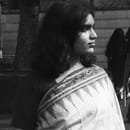Krantijyoti Savitribai Phule was a revolutionary feminist in the 19th century India who challenged the boundaries of caste and gender through her works. Born on 3rd January, 1831 into the Mali Community (OBC caste) as a woman, she was prohibited from getting education and was married off at the age of 9. During those times public education, especially for the lower castes, was available only in a few missionary schools. However, with the camaraderie of Jotiba Phule, Saguna Bai and Fatima Sheikh, Savitribai Phule initiated a change in this scenario that inspired generations to come. Here are 3 ways through which she pursued her revolutionary vision:
- Making education accessible for everyone
According to Manusmriti, “A Shudra is unfit to receive education. The upper varnas should not impart education or give advice to a Shudra.It is not necessary that the Shudra should know the laws and codes and hence need not be taught. Violators will go to amrita hell.”
Savitribai Phule challenged the hegemony of such texts in two ways. First, she received education herself with the help of her husband, Jotiba Phule. Equipped with the tools of education, she got trained as a teacher at Ahmednagar and Pune. At the age of 17, Savitribai along with Jotiba Phule and Sagunabai started a girls school at Bhidewada, Pune. Bhidewada was the hometown of Tatya Bhide who was an admirer of the work undertaken by the Phule couple. The curriculum at the newly established school included secular, western subjects like mathematics, social sciences and natural sciences. This was in contrast with other schools where brahmanical texts were taught.
The journey of opening multiple schools and challenging structural boundaries over education was not an easy one. On her way to school, Savitribai Phule used to carry an extra sari with her as hostile conservatives often threw dung and stones at her. Moreover, Jotiba Phule’s father asked the couple to vacate his home due to their ‘anti-Brahmanical’ activities. However, the efforts of the couple never halted. They established two educational trusts for the welfare of the lower caste communities in 1850. Furthermore, Savitribai emphasized the importance of education in her poem Go, Get Education.
2. Advocate of women’s rights and pioneer in intersectional feminism
Savitribai Phule was a staunch feminist. She was sensitive to the issues of not just lower caste women but of Brahmin widows as well. In her times, pre-pubescent marriages and early mortality rates were common. As a result, many young girls had to live miserable lives as widows. Their heads were shaved off and they were vulnerable to sexual violence which often led to unwanted pregnancies. Many widows committed suicide to break away from this cycle.
Savitribai Phule started the Home for Prevention of Infanticide for pregnant widows. Here, safe deliveries were assured and women could leave their children as well. Savitribai also agitated against the hair shaving ritual for widows. Furthermore, she started the Mahila Seva Mandal in 1852 to advocate for women’s rights. Here, women from all castes and creeds came and sat together on the same mat.
3. Promotion of inter caste marriages through satyashodhak marriages
Caste endogamy is central in maintaining Brahmanical hegemony. Inter-caste marriage is the biggest threat to the caste system. Savitribai Phule worked on this sphere to dismantle the caste system. She initiated the first satyashodhak marriage in history. This type of marriage does not require the presence of a brahmin or recital of Brahmanical verses. It is a form of defying Brahmanical hegemony. Yashwant, the adopted son of Savitribai Phule, was married in a satyashodhak marriage as well. Savitribai Phule was a strong proponent of inter-caste marriages. She was also supportive of widow remarriage while being against child marriage.
The life of Krantijyoti Savitribai Phule is, hence, full of lessons and inspiration. She used her three fold vision of education, women empowerment and inter caste marriages to challenge the hegemony of Brahmanical boundaries i.e. caste and gender. Although she left the world on 10th March 1897, her spirit lived on. Her words, ‘Rise, to learn and act’, continue to inspire people in their fight against structural evils.


